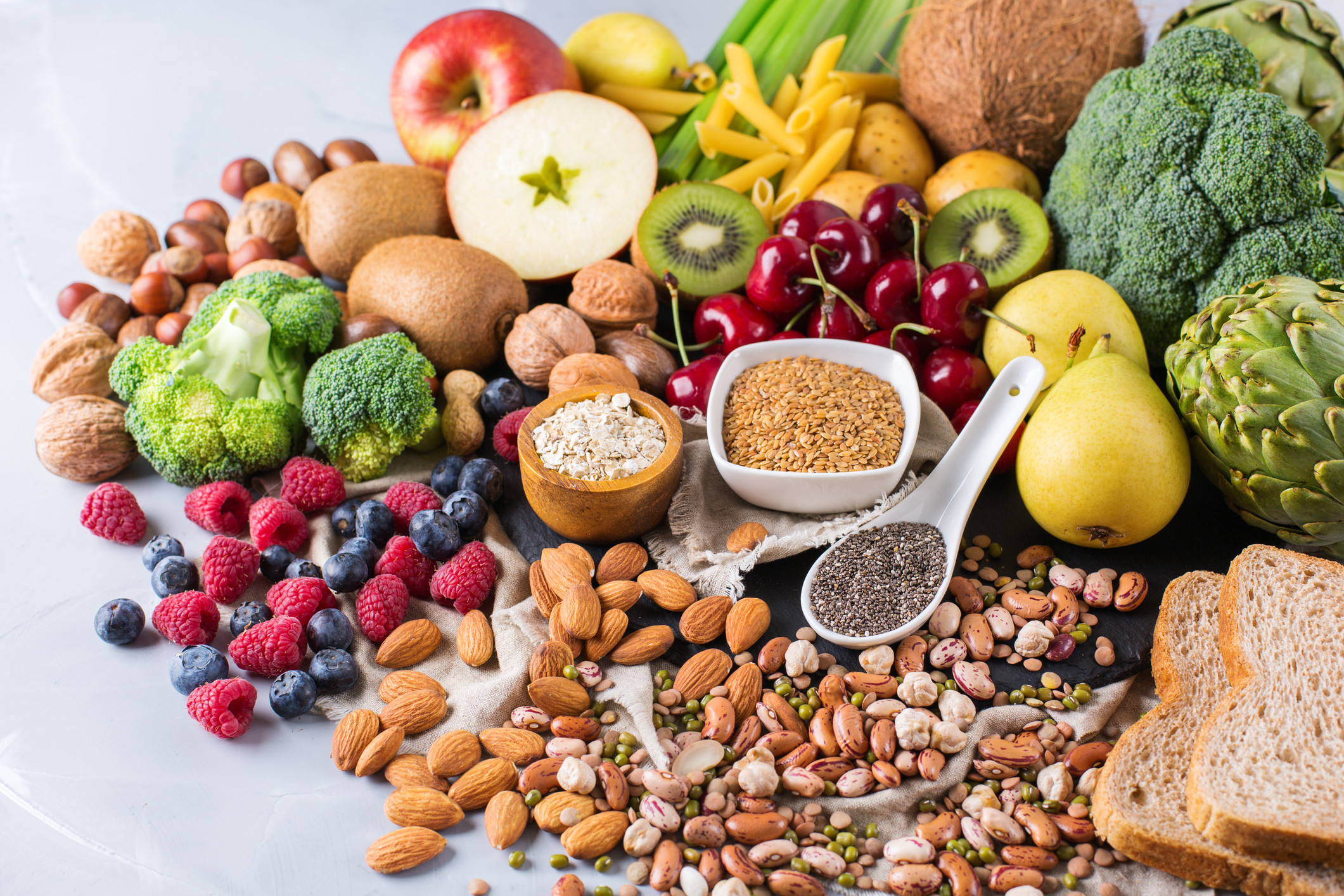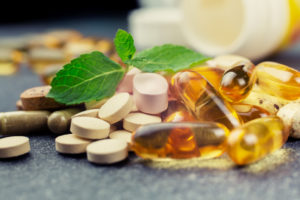
By Dr. John R. Mishock, PT, DPT, DC
The economic burden of treating orthopedic injuries is estimated at $9 billion annually for those 17-44 years of age. (Harlan et al. Am J Public Health 2020) Nutritional interventions are not commonly used as the standard of care in recovery from injury or orthopedic surgery. However, it is well known that good nutrition is critical to optimizing health and wellness.
The nutritional needs become amplified when individuals are healing and recovering from physical injury or orthopedic surgery. For those recovering from surgery, studies have shown that nutrition strategies can reduce hospital stay, increase wound healing time, and reduce the risk of postsurgical infections. (Evans et al. Nutr Clin Pract, 2014)
During surgery or following injury inflammation is the first step of recovery. Initially inflammation is essential for protection of the area and tissue repair, which lasts from a few hours to several days. Following this initial period, the inflammation can be counterproductive, delaying or inhibiting recovery.
Minimizing prolonged or excessive inflammation by ingesting quality food and dietary supplements may accelerate healing, enhancing the physical therapy and rehabilitation process.
Postoperative and Injury recovery needs:
Beyond the inflammation, there is immobilization or disuse following injury or post-surgical recovery. Muscle tissue begins to atrophy within 36 hours, and a significant loss of muscle mass occurs within five days of inactivity and inflammation. (Reich et al. J Appl Physiol, 2010) Early physical therapy is critical to mitigating these harmful effects. Due to the significant catabolic (tissue breakdown) response, there is a considerable need for the right type of calories and protein to prevent the loss of lean body mass while complementing physical therapy. Preventing muscle atrophy can significantly impact short and long-term recovery.
Nutritional needs: Carbohydrate, Protein, Fat, and Supplements:
During the recovery process, the basal metabolic rate (Energy expended during rest) increases from 20% for minor injuries and surgeries to 100% for more severe bodily insults. (Demling et al., Eplasty. 2009) The bottom line there is a need for more high-quality calories, avoiding ultra-processed foods with high amounts of chemicals, sugar, salt, and unhealthy fats.
Protein: Injury and surgery elevate the protein needs by up to 80%. (Kerksick et al. Sports Nutr, 2017) Protein is needed to reduce muscle atrophy and build and repair healing tissue. Recommended protein: plant-based protein, fish, and small amounts of poultry, and lean meats, poultry (approximately 1 g/per lb body weight per day or 30 to 40 g of total dietary protein per meal).
Supplementing protein is a simple and effective way to ensure adequate protein intake. Whey protein (derived from eggs) is considered the highest quality protein supplement, with more than 50% of the amino acid (building blocks of protein) coming from essential amino acids (amino acids the body cannot make). Whey also has high amounts of leucine, a key muscle building amino acid. If you follow a whole food plant-based diet plant-based protein supplements can be utilized, such as pea, soy, hemp, or rice.
Carbohydrate: Diets should emphasize fewer carbohydrates (approximately 40%) or a 2:1 carbohydrate to protein ratio (e.g., 260 g carbs and 130 g protein), which promotes positive changes in body composition. (Weigle et al. Am J Clin Nutr. 2005, Layman et al. Nutr Metab, 2009)
Fat: Fat is a critical energy source for healing wounds and increasing cell growth and proliferation. Polyunsaturated and monounsaturated fats are essential for healing, especially omega-3 fatty acids, found in avocado, olive oil, fish, flax, nuts, and seeds. Omega-6 fatty acids (processed meats, fried and greasy foods, cakes and pastries, and ultra-processed foods) are pro-inflammatory and should be limited. Approximately 20-25% (0.8 to 2 g/kg per body weight per day) of calories should come from fat.
“Super-foods”: Super-foods are scientifically proven and should be normal part of all Americans diet. These choice foods are packed with large amounts of vitamins, minerals, antioxidants, flavonoids, and phytochemicals that optimize cellular healing and recovery. Berries fruit (elderberry, blueberry, raspberry, strawberry), Citrus fruit (oranges, grapefruits, tangerines, lemons), Other fruits (tomatoes, apples, watermelon), Leafy greens (spinach, Swiss chard, kale, collard greens, or mustard greens), Cruciferous vegetables (broccoli, Brussels sprouts, cabbage, cauliflower, collard greens, kale, kohlrabi, mustard greens, radishes, and turnips), Nuts (hazelnuts, walnuts, almonds, pecans, whole grains (oatmeal, quinoa, brown rice, wheat bread), Legumes (kidney, black, red, and garbanzo beans, soybeans and peas), Tea and coffee, Mushrooms, Sweet potatoes. It is recommended to have 5-10 servings (palm size is one serving) daily.
Dietary supplements:
Creatine monohydrate (Creatine):
Based on decades of research, creatine is the most effective supplement for improving intense exercise performance and enhancing muscle healing, repair, and hypertrophy. It also improves bone health, neuromuscular function, and brain health. A recommended dose of 20g (4 x 5 g daily) for five days, then 5g per day after.
Omega 3 fatty acids:
Omega 3 fatty acids have anti-inflammatory properties and may help control an exaggerated inflammatory response, reduce muscle loss, and enhance cellular repair. Omega 3 supplementation should begin 2-4 days after injury or surgery as not to impede the important early phases of healing. (Calder et al. Br j Nutr, 2009). A recommended dose of 2000-4000 mg daily may reduce chronic inflammation and maximize protein synthesis. (Smith et al. Clin Sci, 2011)
Vitamin D:
Vitamin D is essential for calcium and bone regulation, but it also plays a role in innate and acquired immune regulation and skeletal muscle function. Vitamin D is produced in the skin from approximately 20 minutes of sunlight daily. It is also found in fortified foods such as; cheese, yogurt, orange juice, and some cereals. A recommended dose of 2000-4000 IU per day. (Correia et al. Am J Clin Nutr, 2008)

Probiotics:
Probiotics are the “good” bacteria that live in our gastrointestinal system (digestive system) that account for approximately 70% of the immune system. Because antibiotics are used following surgery, there can be a negative shift in the gastrointestinal flora, leading to changes in nutrient metabolism and immunity. The strands of lactobacillus acidophilus and Bifidobacterium longum have exhibited positive immune effects. (Maughan et al. Br J Sports Med, 2018) The probiotics can be found in yogurt or as dietary supplements. A recommended dose of >1010 colony-forming units. (Smith-Ryan et al. Jour of Athl Train. 2020)
Other vitamins and micronutrients:
Curcumin, Vitamin A, C, E, selenium, and zinc have a positive effect on wound healing and inflammatory control. Foods such as; kiwi, orange, strawberries, avocado, broccoli, carrots, spinach, seeds, almonds are excellent sources of these micronutrients. A multivitamin with an antioxidant formula could be used if these foods are not available.
Nutrient Timing Around Physical Therapy:
Nutrient timing around physical therapy can help reduce muscle damage, enhancing recovery, and improve body composition.
- Three to four hours before physical therapy, have 50-100 g of complex carbohydrate, 30-50g of protein, 15-20 g of fat.
- Fifteen to forty-five minutes before physical therapy, have 25 g of protein (whey, pea, soy), 5 g of creatine monohydrate, and 2g of fish oil.
- Thirty minutes following physical therapy, have 25 g of protein (whey, pea, soy), 5 g of creatine monohydrate.
Dr. Mishock is one of only a few clinicians with doctorate level degrees in both physical therapy and chiropractic in the state of Pennsylvania.
He has also authored two books; “Fundamental Training Principles: Essential Knowledge for Building the Elite Athlete”, “The Rubber Arm; Using Science to Increase Pitch Control, Improve Velocity, and Prevent Elbow and Shoulder Injury” both can be bought on Amazon.
If pain or limited function is keeping you from doing the activities you enjoy,
WE CAN HELP!
Reduce pain and increase function
Call for a FREE Phone Consultation or to schedule your visit (610)327-2600.
Locations: Gilbertsville, Skippack, Phoenixville, Steiner Medical, Boyertown, Pottstown, and Limerick (inside the Spring Valley YMCA).
Appointments available 7:00am to 8:00pm, ALL locations, most days!
Saturday Appointments available
Visit our website to REQUEST AN APPOINTMENT, read informative articles, meet our physical therapy staff, and learn about our treatment philosophy.
